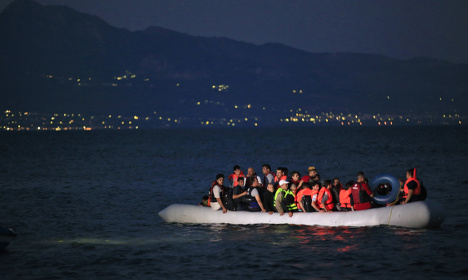“Asylum seekers have a fundamental right to have their individual asylum claims reviewed in a safe country. Under this agreement there is a genuine risk that people will be denied the right to an individual assessment because it treats all refugees under a mass agreement,” Louise Gunvén, lawyer and board member of Lawyers Without Borders told Swedish news agency, TT.
Asylum law prohibits return to a country that is unsafe, where people risk being subjected to inhumane or degrading treatment or torture.
“Our extensive experience of Turkey is that people risk being exposed to such treatment. Considerable failings exist in the Turkish legal system, as well as the risk of not getting a fair trial,” Gunvén said.
The deal also drew criticism from John Dalhuisen, Amnesty International's Director for Europe and Central Asia, who said promises by the EU to respect international and European law “appear suspiciously like sugar-coating the cyanide pill that refugee protection in Europe has just been forced to swallow”.
EU leaders approved a controversial deal with Turkey on Friday to curb the huge flow of asylum seekers to Europe, with all migrants arriving in Greece from Sunday to be sent back.
The 28 EU leaders approved the deal which was negotiated with Turkish Prime Minister Ahmet Davutoglu in a bid to end an unprecedented crisis dividing the continent.
Czech Prime Minister Bohuslav Sobotka confirmed that the expulsion of migrants arriving on the Greek islands would begin on Sunday.
“Deal with Turkey approved. All illegal migrants who reach Greece from Turkey as of March 20 will be returned!” Sobotka wrote on Twitter.
But the deal comes at a heavy cost for Europe, with many members of the bloc expressing misgivings about the legality of the deal and Turkey's human rights record.
Turkey has demanded an acceleration of its long-stalled bid for EU membership, the doubling of refugee aid to six billion euros ($6.8 billion) and visa-free travel in return for taking back all new irregular migrants coming to Greece, the main entry point to Europe.
Davutoglu is now set to formally sign off on the accord at a final meeting with EU leaders.
However, in a sign of the tensions that remain between Ankara and Brussels, President Recep Tayyip Erdogan blasted several EU states for taking only a “handful of refugees” in contrast to the nearly three million Turkey has admitted, most of them fleeing the Syrian war.
Erdogan also accused the Europeans of supporting the outlawed Kurdistan Workers' Party (PKK) days after a bombing in Ankara claimed by Kurdish rebels allegedly linked to the group.
“European countries are paying no attention, as if they are dancing in a minefield,” he said.
Critics have said the mass expulsion planned under the EU-Turkey deal could infringe international law on the treatment of asylum seekers.
Under the terms of the plan, the EU would take in one Syrian refugee from Turkish soil in exchange for every Syrian readmitted to Turkey from Greece.
The move is meant to discourage them from risking their lives in often rickety and overcrowded boats operated by smugglers.
EU officials insisted the deal would be stressed repeatedly each application would be treated individually, with full rights of appeal and proper oversight.
EU sources said last-minute sticking points were cleared up over the deal's legality, Turkey's membership bid, the date for launching the agreement and a plan to double the amount of aid to Turkey to six billion euros ($6.8 billion).
Another major hurdle that was overcome was opposition from Cyprus, rooted in long-standing tensions with Turkey over Ankara's refusal to recognise its government on the divided island.
More than 1.2 million migrants have come to Europe since January 2015 in the continent's biggest migration crisis since World War II, and around 4,000 have drowned while trying to cross the Aegean Sea between Turkey and Greece.


 Please whitelist us to continue reading.
Please whitelist us to continue reading.